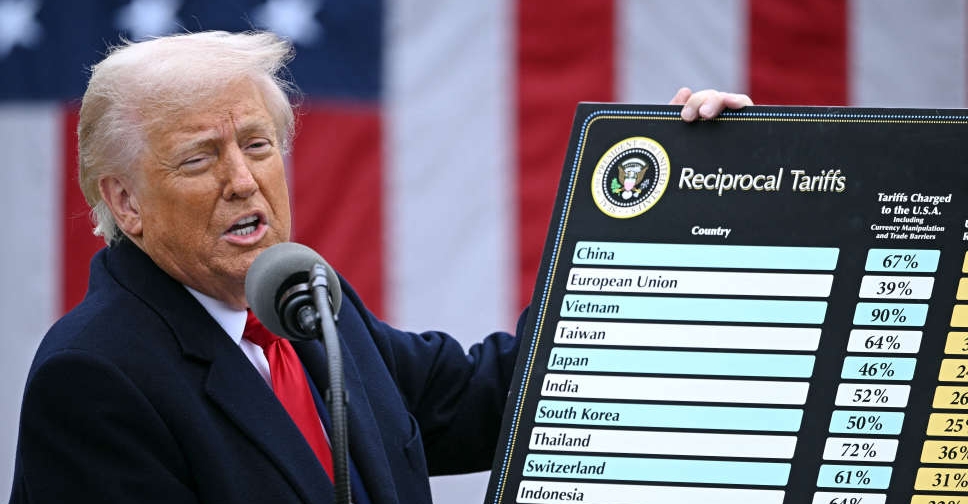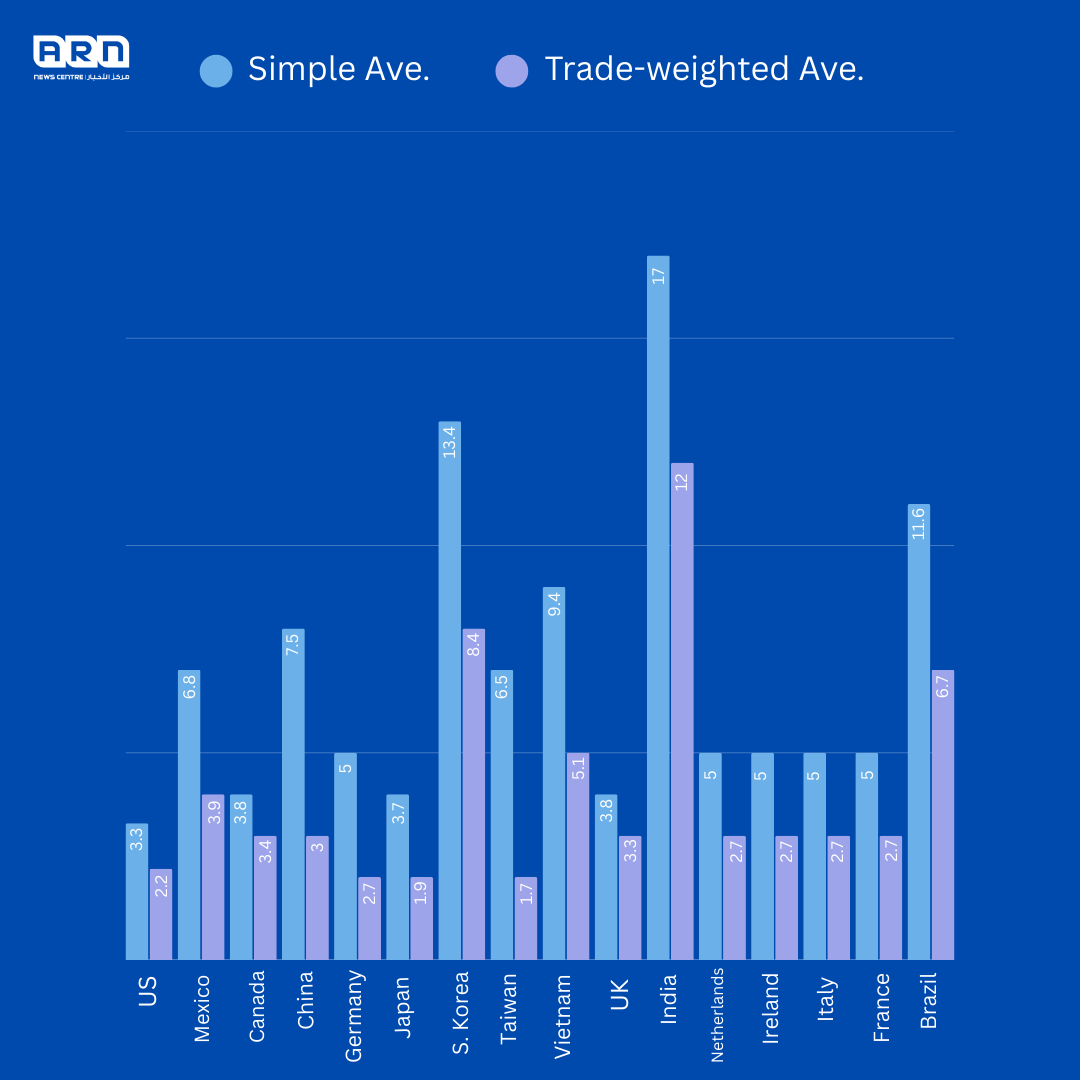
The UAE and Saudi Arabia will face a universal 10 per cent tariff on imports under US President Trump's sweeping duties on dozens of countries.
The higher "reciprocal taxes" on several countries, including China, Japan, India and European Union, has intensified a global trade war that threatens to stoke inflation and stall growth.
Pakistan faces 29 per cent tariff while India is hit with 26 per cent and Philippines with 17 per cent.
Close US allies were not spared Trump's ire, including the European Union, which faces a 20 per cent tariff, and Japan, which is targeted for a 24 per cent rate. Tokyo said it was leaving all options to respond to the "extremely regrettable" duties.
The 10 per cent tariffs go into effect on April 5 and the higher reciprocal rates on April 9.
Describing the announcement as "Liberation Day", Trump explained that the "reciprocal taxes" were a response to duties and other non-tariff barriers put on US goods.
The announcement immediately unleashed turbulence across world markets and drew condemnation from other leaders now faced with the end of decades of trade liberalisation that have shaped the global order.
As Asia awoke to the news on Thursday, Japan's Nikkei hit an eight-month low while US and European stock futures dropped sharply following weeks of volatile trading. US stocks have erased nearly $5 trillion (AED 18.3 trillion) of value since mid-February.
China, the world's second-largest economy, faced with a fresh 34 per cent tariff on top of the 20 per cent Trump previously imposed, urged the United States to immediately cancel its latest levies and vowed countermeasures.
US Treasury chief Scott Bessent urged other nations not to retaliate, moves that could lead to dramatically higher prices for consumers goods. "If you retaliate, that’s how we get escalation," Bessent told CNN.
Graph shows average tariff rates of US and its top 15 trading partners
Most-Favoured Nation tariff rates by country, simple average for all products and trade-weighted average, in per cent. *US trade with Canada, Mexico, and South Korea is duty-free for most products under free trade agreements.

LIBERATION DAY RECIPROCAL TARIFFS 🇺🇸 pic.twitter.com/ODckbUWKvO
— The White House (@WhiteHouse) April 2, 2025
The effective US import tax rate has shot to 22 per cent under Trump from just 2.5 per cent in 2024, according to the head of US research at Fitch Ratings. "That rate was last seen around 1910," Olu Sonola said in a statement. "This is a game-changer, not only for the US economy but for the global economy. Many countries will likely end up in a recession. You can throw most forecasts out the door if this tariff rate stays on for an extended period of time."
The "reciprocal" tariffs, Trump said, were a response to duties and other non-tariff barriers put on US goods. He argued that the new levies will boost manufacturing jobs at home. "For decades, our country has been looted, pillaged...and plundered by nations near and far, both friend and foe alike," Trump said.
Outside economists have warned that tariffs could slow the global economy, raise the risk of recession, and increase living costs for the average US family by thousands of dollars.
Canada and Mexico, the two largest US trading partners, already face 25 per cent tariffs on many goods and will not face additional levies from Wednesday's announcement.
Even some fellow Republicans have expressed concern about Trump's aggressive trade policy.
Within hours of Wednesday's announcement, the Senate voted 51-48 to approve legislation that would terminate Trump's Canadian tariffs, with a handful of Republicans breaking with the president. Passage in the Republican-controlled US House of Representatives, however, was seen as unlikely.
Trump's top economist, Stephen Miran, told Fox Business on Wednesday the tariffs would work out well for the US in the long run, even if they cause some initial disruption. "Are there going to be short-term bumps as a result? Absolutely," Miran, the chairman of Trump's Council of Economic Advisors, told the network's "Kudlow" programme.

 Nasdaq set to confirm bear market as Trump tariffs trigger recession fears
Nasdaq set to confirm bear market as Trump tariffs trigger recession fears
 Dana Gas and Crescent Petroleum exceed 500M boe in Khor Mor field
Dana Gas and Crescent Petroleum exceed 500M boe in Khor Mor field
 China to impose tariffs of 34% on all US goods
China to impose tariffs of 34% on all US goods
 Shares bruised, dollar crumbles as Trump tariffs stir recession fears
Shares bruised, dollar crumbles as Trump tariffs stir recession fears
 Wall Street futures sink as tariffs fuel recession fears
Wall Street futures sink as tariffs fuel recession fears




